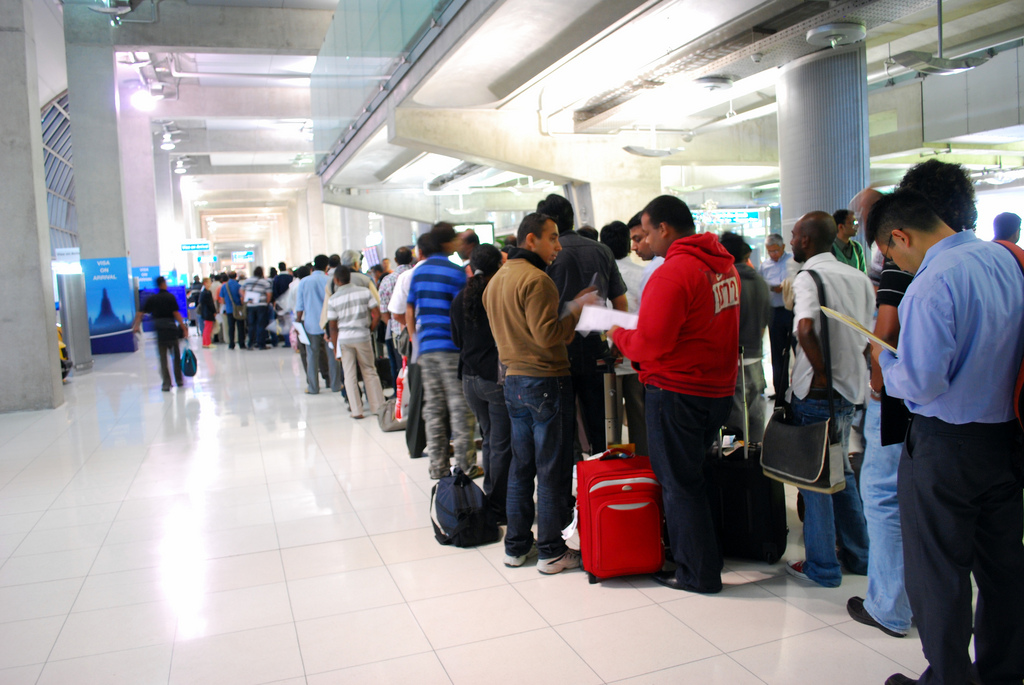Many Indians in New Zealand continue to hold Indian passports after becoming New Zealand citizens – either out of ignorance or willful intention (claiming ignorance).
The Indian High Commission in New Zealand has appealed to such Indians to surrender their Indian passports.
“Of late, many cases have been coming to the notice of this High Commission where the applicants have not surrendered their Indian Passports within three years of acquisition of New Zealand citizenship,” says the announcement on the High Commission’s website.
“In some cases, the applicants have gone even further and used the Indian passports for travel after acquisition of foreign nationality.”
People often confuse PIO status with dual citizenship. This is not true.
The Indian Citizenship Act 1955 does not allow dual citizenship.
It is a serious offense to retain Indian passport after acquiring citizenship of another country.
The Indian Passport Act 1967 says:
“Holding Indian passport/acquiring Indian passport/travelling on Indian passport after acquisition of foreign citizenship constitutes an offence under the Indian Passport Act, 1967, and attracts penalties.
The Government of India has prescribed imposition of penalty on a graded scale, depending on number of trips made on Indian passport after acquiring foreign nationality, for the violation of Passport Rules and retention of Indian Passport for more than 3 years after acquiring of foreign nationality.â€
If you have violated the above provisions, then you will need to surrender you Indian passport and pay appropriate penalty to the Indian High Commission in New Zealand.
The Wellington-based High Commission has no authority to waive off such penalties.
Like any other law, the Indian Citizenship Act as well as Passport Act does not pardon such errors on account of ignorance of law.
If you have acquired New Zealand citizenship, you are required to cancel your Indian passport without delay to avoid higher penalties.
The Indian High Commission website contains a table that shows how much penalty you would be expected to pay.
Besides, if you haven’t surrendered your Indian passport, you will find it difficult to get visa for your dependent children. Indian origin parents with New Zealand citizenship will need to provide evidence of cancellation of Indian passport, for obtaining visa for their minor children.
Once you surrender your Indian passport, you will travel on your New Zealand passport and may need a visa to visit India. To avoid this hassle, many New Zealand citizens of India origin opt for a PIO card.
How is PIO card different from dual citizenship?
Beginning September 2002, India introduced PIO scheme of people of Indian origin living outside India.
The PIO card is like a long-term visa. With PIO card, which stands for Persons of Indian Origin, you don’t have to apply for a visa to visit India. Valid for 15 years, The PIO card scheme enables a person of Indian origin, up to the 4th Generation down, as also spouses of such persons to apply for and obtain a PIO card.
The PIO card is given to up to 4th generation down. So if your great grandparents were citizens of India, you are still eligible for a PIO card.
Even spouses of PIOs, who may not be of Indian origin, are eligible to obtain a PIO card.
However, India specifically excludes citizens of its neighboring countries like Pakistan, Bangladesh, Sri Lanka, Nepal, Bhutan and China, and those of high-risk countries like Afghanistan and Iran from obtaining a PIO card.
 Benefits of a PIO card
In addition to visa waiver, PIO card offers many other benefits:
- All foreign nationals (including foreigners of Indian origin) visiting India for more than 180 days (whether for study, research or employment) need to register with the Foreigners Regional Registration Officer (FRRO) within 14 days of arrival. PIO card holders don’t have to register until 30 days prior to the expiry of the initial 180-day period in India.
- PIOs can buy, hold, transfer and dispose of immovable properties in India. This applies to residential as well as commercial properties.
- PIO children can study in India’s medical colleges, engineering colleges, IITs, IIMs under the general categories like resident Indians.
- There are special counters at the immigration check posts for PIOs.
PIOs however don’t get voting rights, cannot contest elections for any political position in India, neither are they allowed to buy agricultural land.
How much does a PIO card cost?
PIO card fees is NZ$695 for adults, and it is valid for 15 years. If your New Zealand passport expires before the expiry of your PIO card, you can still travel on your existing PIO card which contains old passport number. However, India’s Bureau of Immigration advises to have necessary endorsement of the new passport from the competent authority on their PIO cards “to avoid any inconvenience”.
Overseas Citizen of India (OCI) status
OCI status is given to those Indians who once were citizens of India (or were eligible to be Indian citizens), and have now surrendered Indian citizenship in favor of a foreign citizenship. OCI is different from PIOs in that PIO card is also issued to spouses and children even if they were never a citizen of India.

Leave a Reply